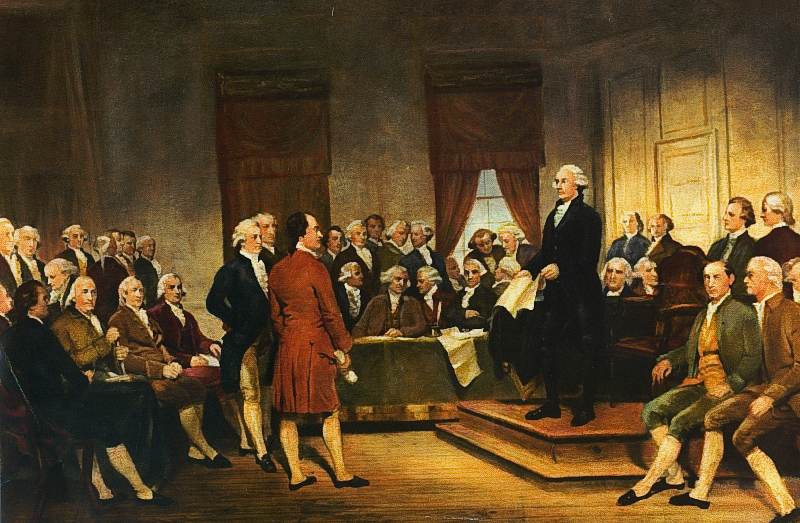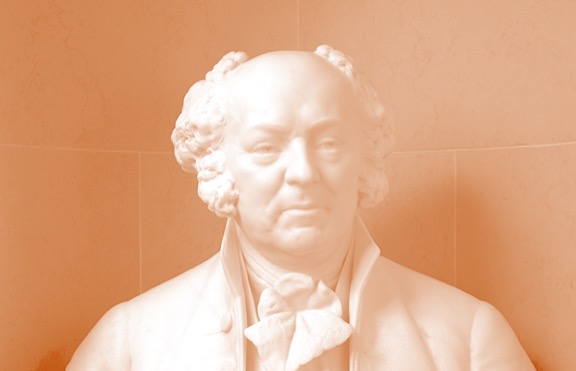Which Way—Of Life?

Daniel McCarthy’s recent First Things essay eloquently articulates two points that have become central to the discourse of our more thoughtful nationalists. First, economic growth isn’t everything. Second, it’s necessary at this juncture to re-negotiate our social contract, making it more responsive to the needs of struggling middle-class Americans.
In very broad form, it’s hard to disagree with either claim. The devil is in the details, though. A rising GDP certainly isn’t everything, but it generally does mean widespread prosperity, which is in fact what we see: America today is still a very prosperous nation. It’s certainly clever of McCarthy to accuse America’s elite classes of “nineties nostalgia”; no doubt many defenders of free trade do think fondly on that era. However, one needn’t be in the grip of Nirvana nostalgia to prefer wealth to poverty, and prosperity to scarcity.
McCarthy isn’t anti-prosperity of course, but he does want us to get used to the idea that it might be fine to accept less overall prosperity (at least in the short term) for the sake of sustaining or reinvigorating the particular ways of life that are meaningful to subset of the populace. This is similar to what Oren Cass has recently dubbed “productive pluralism”: an economic policy that juggles a range of preferred human outcomes instead of just focusing relentlessly on growth. Maybe it is fine (even wise or just) to do that. It’s true enough that a thriving economy can’t be built on the backs of a dysfunctional culture and workforce. Still, one man’s productive pluralists are another’s special pleaders, so it’s important to flesh out the plea. What exactly would we be preserving with this new nationalist agenda, and why is it worth any interim sacrifices that might be demanded?
Though he isn’t terribly explicit about it, it seems like McCarthy must have his sights set on particular subcultures and regions that are currently struggling (for instance, depressed rust belt towns once reliant on manufacturing). Undoubtedly there are serious social problems in these regions that need to be addressed, but we should keep everything in perspective. The reality is that a substantial share of our population does seem to be thriving, and not just financially. In our nation today there is no absolute shortage of material goods, jobs, potential spouses, schools, hospitals, libraries, church pews, or anything else that should be needed to forge a meaningful life. These things may not be readily available in the most-preferred form, or in the regions where they are most wanted. But if we’re asking all Americans to help sustain fully-fleshed ways of life (as opposed to just opening opportunities or ensuring adequate sustenance for all), then it’s important to make the case for why those ways of life are good and valuable, and why people who live this way are ultimately capable of making significant contributions to the nation as a whole.
To give McCarthy’s argument a broader appeal, we will need a bit less W.E.B. DuBois, and a bit more Booker T. Washington. Just because people have lived in a particular way for a period of time, doesn’t mean that they should go on living that way, or that others should make sacrifices to enable them to do so. Not all Americans are convinced that the subcultures in question are particularly admirable. They worry that they are a bit chauvinist, or a bit racist, or just incapable of making necessary adaptations that will enable their communities to thrive in the 21st century. Is that true? Is it important? These are painful questions, but if we can’t address them, we can’t possibly expect a majority of Americans to pull together in solidarity with struggling regions of a country that in general boasts an enviable standard of living, and a great deal of opportunity.
The American Mind presents a range of perspectives. Views are writers’ own and do not necessarily represent those of The Claremont Institute.
The American Mind is a publication of the Claremont Institute, a non-profit 501(c)(3) organization, dedicated to restoring the principles of the American Founding to their rightful, preeminent authority in our national life. Interested in supporting our work? Gifts to the Claremont Institute are tax-deductible.
Root, root, root for the electors. If they don't win it's a shame.
Part I: Unfettered reason cannot conserve anything.
Part II: Honor and self-constraint can stave off tyranny.






